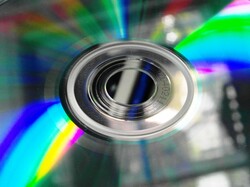Newer is Not Always Better and Wayland Is Not Better Than X11 (Initial Release June 1984)
X11 turns 40 next summer (the early days of CD-ROM)
THE "progress" we're seeing in 'tech' (or 'science') is warped by its marketing. It is somewhat subjective, not objective, with occasional lies by omission. Let's take for example SSDs; SearX tells me that: "Overall, if SSD is not getting power for several years, it may lose data. According to research, an SSD can retain your data for a minimum of 2-5 Years without any power supply."
This site concerning hard drives is being more 'generous': "Newer models of SSD claim to be able to retain data for as long as 50 years without power, that said the average consensus is somewhere between 5 to 10 years based on consumer data."
There's also this, which does not concern CRC science: "With that said there is another thing to consider and that is the recoverability of the data. HDD data is far easier to recover, SSDs are harder to recover data from and once the data is corrupted due to the transistor charge failing the data is unrecoverable."
Then consider CDs and DVDs, which go decades back and are cheap to produce. How good are they at retaining data (sans error correction as a factor)? Here we go: "estimates predict a lifespan of up to 200 years for recorded CD-Rs and Blu-Ray discs."
Depends on brands, storage conditions etc. I still use CDs that I burned in the 1990s. They work.
Let this be a reminder that newer is not always better. The same is true in operating systems and software. Wayland is failing at so many things, yet they try to impose it on us and only focus on some perceived merits that to the average users don't matter at all. █

